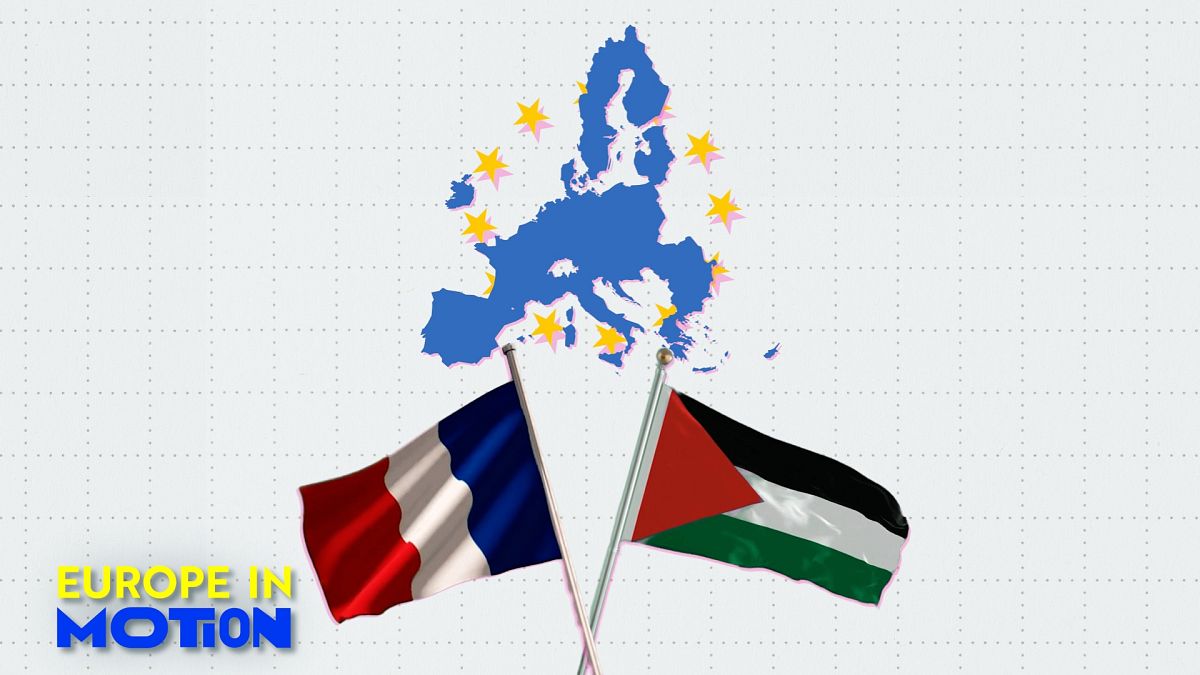French President Emmanuel Macron announced on social media on 24 July that France will recognise Palestine as a state at the United Nations General Assembly in September.
Macron shared his letter to Palestinian President Mahmoud Abbas in an X post, alongside a statement which read: “The French people want peace in the Middle East. It is up to us, the French, together with the Israelis, the Palestinians, and our European and international partners, to demonstrate that it is possible.”
France will become the first G7 country and the first permanent member of the UN Security Council (France, United States, China, United Kingdom and Russia) to recognise Palestine, joining 147 member states of the United Nations that have already done so.
The act of recognition involves acknowledging the sovereignty and independence of Palestine within its pre-1967 Middle East war borders. This includes the West Bank, Gaza, and East Jerusalem. The move will also lead to the establishment of full diplomatic relations between France and Palestine.
This decision was taken amid a renewed push in Europe to bring the war in Gaza to an end.
European Commission President Ursula von der Leyen and the EU’s chief diplomat Kaja Kallas have called the suffering in Gaza “unbearable” and “indefensible”.
Before France, 10 out of 27 EU countries had already recognised Palestinian statehood.
Bulgaria, Cyprus, Hungary, Poland, and Romania recognised Palestine in 1988, well before they became EU member states.
The former country of Czechoslovakia also recognised Palestinian statehood in 1988.
However, after it split into the Czech Republic and Slovakia in 1992, the Czech Republic did not recognise such a state.
“The Palestinian state did not meet the conditions for statehood under international law, of which the Czechoslovak government was fully aware,” the Ministry of Foreign Affairs of the Czech Republic wrote on its official website in 2020. “The Czech Republic has not yet recognised the Palestinian state.”
Meanwhile, Slovakia reconfirmed its recognition of Palestine in 1993.
In October 2014, Sweden became the very first country to recognise Palestine while being an EU member state.
“The purpose of Sweden’s recognition is to contribute to a future in which Israel and Palestine can live side by side in peace and security. We want to contribute to creating more hope and belief in the future among young Palestinians and Israelis who might otherwise run the risk of believing that there is no alternative to the current situation,” said the then Swedish Minister for Foreign Affairs, Margot Wallström.
Sweden took this step at the height of months-long clashes between Israelis and Palestinians in East Jerusalem.
More recently, on 28 May 2024, Spain and Ireland recognised Palestine as a state, claiming the decision aimed to help Israelis and Palestinians reach peace.
On 4 June 2024, Slovenia also recognised the state of Palestine.
“Slovenia and Palestine have established good relations, which are underpinned by regular political dialogue,” Slovenia’s official website stated. The two countries also collaborate in education and humanitarian aid, including by implementing a variety of humanitarian projects.”
Macron’s announcement sparked anger from Israel and the United States. Israeli Prime Minister Benjamin Netanyahu condemned the decision, as did US State Secretary Marco Rubio.
“This reckless decision only serves Hamas propaganda and sets back peace. It is a slap in the face to the victims of October 7th,” Rubio wrote on X.
Netanyahu lashed out at France’s announcement, calling it a betrayal by a close ally and warning it would “reward terror”.
“A Palestinian state in these conditions would be a launch pad to annihilate Israel — not to live in peace beside it,” he said on X.
What about other EU countries?
Other EU countries have reacted to France’s decision, stating that they will not follow these steps.
Despite recent calls for an “immediate ceasefire” and “urgently needed humanitarian aid”, Germany has claimed it has no plans to follow France’s lead.
Germany has traditionally been a particularly staunch ally of Israel in Europe, with relations rooted in the history of the Holocaust.
It says recognising a Palestinian state should be “one of the concluding steps” in negotiating a two-state solution, and it “does not plan to recognise a Palestinian state in the short term”.
Italy is also not planning on recognising the state of Palestine. The country’s Prime Minister Giorgia Meloni stated that the recognition “without there being a state of Palestine” would be “counterproductive”.
Meanwhile, the Belgian position will be determined by the government in early September.
“I will make a proposal to the government before the UN General Assembly in September so that it can decide on this matter, taking these elements into account,” Foreign Minister Maxime Prévot wrote on X.
Behind the recognition of a Palestinian state lies the idea of the two-state solution to the Israeli-Palestinian conflict, which served as the basis of peace negotiations between Israelis and Palestinians from the Oslo Accords in 1993 up until 2014.
While the Palestinian Authority still advocates for two states, Israel no longer supports this solution to the conflict, nor does its ally, the US.
In fact, settlement activity on the West Bank has further expanded in the past years, rendering the creation of a contiguous Palestinian state impossible.
Add to that US President Donald Trump’s recognition of Jerusalem as Israel’s capital in 2017, prompting the US embassy to move there from Tel Aviv. With this in mind, recognising a Palestinian state is largely symbolic and remains unfeasible as things stand on the ground.

